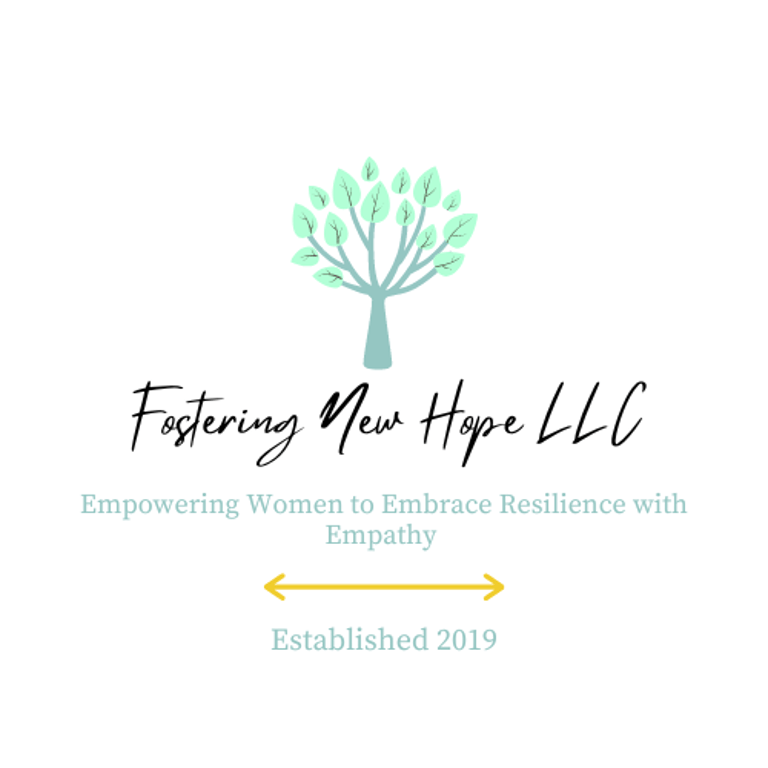Is He a Narcissist, or Just Really Into Himself? A Mom's Guide to Navigating Partner Personalities
A guide for women on Narcissistic tendencies, personality disorders, and emotional intelligence in men.
NARCISSISMHEALING
Chaney Fletcher
6/24/20256 min read


Alright, mamas, gather 'round. Let's talk about the men in our lives. Specifically, the ones who sometimes make us wonder if we accidentally married a Greek god with an ego the size of Mount Olympus. Are we dealing with genuine Narcissistic Personality Disorder (NPD), or just garden-variety selfishness? Pour a glass, because this could take a minute...
See, the thing is, we've all got some narcissistic traits. It's human nature to want to feel special, to crave a little validation. But there's a canyon-sized difference between occasionally fishing for compliments and needing to control every aspect of your life, all while lacking empathy for the poor souls around you. (Like the ones doing ALL the laundry, for example.)
So, how do we know if our beloved is simply a bit self-absorbed, or if we've accidentally signed up for a lifetime of emotional gymnastics with an actual narcissist? Here's a super-scientific (read: mom-approved) guide:
Narcissistic Tendencies:
Loves attention: Enjoys being the center of attention, but can also share the spotlight (eventually).
A bit vain: Spends a little too long in the mirror, but hey, who doesn't?
Can be selfish: Might occasionally forget your birthday (gasp!), but usually makes up for it. (Maybe.)
Empathy-lite: Sometimes struggles to see things from your perspective, but can usually be reasoned with.
Narcissistic Personality Disorder (NPD):
Needs constant admiration: Demands praise and validation, and gets angry if they don't receive it.
Grandiose sense of self-importance: Believes they are superior to others and deserves special treatment.
Lacks empathy: Unable to understand or share the feelings of others. Like, completely unable.
Exploitative: Takes advantage of others to achieve their own goals.
Entitled: Has an unreasonable expectation of favorable treatment.
Arrogant: Haughty and boastful behavior.
Big difference, right? One is occasionally annoying, the other is potentially life-altering!
Okay, before we completely villainize the entire male population, let's acknowledge the elephant in the room: societal conditioning. From the moment they're born, boys are often taught that showing emotions (other than anger, of course) is a sign of weakness. 'Man up!' 'Boys don't cry!' Sound familiar?
So, is it any wonder that many men struggle to express their feelings? It's not an excuse for narcissistic behavior, but it is important to understand how this conditioning can contribute to a lack of emotional intelligence.
Now, let's dive into the murky waters of emotional intelligence (EQ). You see, EQ is all about understanding and managing your own emotions, as well as recognizing and responding to the emotions of others. People with high EQ are better at building relationships, resolving conflicts, and navigating the complexities of social interactions.
But here's the kicker: studies have shown that women generally score higher in EQ tests than men. Now, this isn't about claiming one gender is superior to the other. Rather, it likely stems from a combination of factors, including:
Socialization: Women are often encouraged to express and discuss their feelings, while men are often discouraged from doing so.
Brain differences: Some research suggests that there may be slight differences in brain structure and function that contribute to differences in emotional processing.
Cultural expectations: In many societies, women are expected to be more nurturing and emotionally supportive, which can lead to greater EQ development.
Alright, let's wade into the deep end of personality disorders, shall we? Now, it's super important to remember that I'm not a medical professional, and this is purely for discussion purposes. When we're talking about emotional expression and interpersonal relationships, a few personality disorders might rear their heads:
Narcissistic Personality Disorder (NPD): Grandiosity, a need for admiration, and a lack of empathy can definitely hinder emotional connection.
Antisocial Personality Disorder (ASPD): Disregard for rules, impulsivity, and a lack of remorse can make building healthy relationships... challenging, to say the least.
Borderline Personality Disorder (BPD): Emotional instability, impulsivity, and fear of abandonment can lead to intense, volatile relationships.
Avoidant Personality Disorder: Feelings of inadequacy, sensitivity to negative evaluation, and social inhibition can make it hard to connect with people
Histrionic Personality Disorder: Excessive emotionality and attention-seeking behavior can get in the way of genuine connection.
Alright, buckle up, because this is where it gets really interesting. While each personality disorder has its own specific criteria, there can be significant overlap in how they present outwardly. Think of it like a Venn diagram – certain behaviors might fall into multiple categories.
Emotional Dysregulation: Difficulty managing emotions is a hallmark of BPD, but it can also show up in NPD (in the form of rage), ASPD (in the form of impulsivity), HPD (in the form of excessive emotionality) and APD (in the form of anxiety).
Relationship Difficulties: Almost all personality disorders impact relationships, but the reasons for those difficulties can vary. Someone with NPD might struggle due to a lack of empathy, while someone with BPD might struggle due to fear of abandonment, while someone with AvPD might struggle from fear of rejection.
Impulsivity: This is a key feature of ASPD and BPD, but it can also show up in other disorders as well.
Attention-Seeking: While most associated with HPD, individuals with NPD may also seek attention and admiration.
Alright, but first, please remember, I'm not a therapist or counselor, so this isn't a substitute for professional advice! And also, change is hard, especially when it comes to deeply ingrained personality traits. Also, remember to be patient and keep in mind that a psychologist's or psychiatrist's diagnosis is a must before attempting to "correct" anything.
That being said, if someone with NPD is genuinely motivated to change (and that's a big "if"), here are a few potential avenues they could explore:
Therapy: Especially psychodynamic therapy or cognitive behavioral therapy (CBT). These approaches can help people explore the underlying causes of their behavior, challenge their distorted thought patterns, and develop healthier coping mechanisms.
Mindfulness and Empathy Training: These techniques can help individuals become more aware of their own emotions and the emotions of others. Practicing empathy can help them develop a greater sense of connection and compassion.
Group Therapy: This can provide a supportive environment where individuals can receive feedback from their peers and learn from others' experiences.
Approaching the subject of narcissistic tendencies in a partner requires tact, empathy, and a whole lot of patience. Rushing in can be disastrous, and it's important to choose your moment wisely.
Here's a possible approach:
Timing is Key: Choose a calm, neutral time when you're both relaxed and not already in the midst of a conflict. Avoid bringing it up when your partner is stressed, tired, or feeling defensive.
Focus on Your Feelings: Frame the conversation around how their behaviors affect you. Use "I" statements to express your feelings without blaming. For example, instead of saying "You're so selfish," try saying "I feel hurt when my needs aren't considered."
Be Specific: Avoid vague generalizations. Instead of saying "You never listen to me," provide specific examples of instances where you felt unheard or dismissed.
Acknowledge Their Strengths: Start by acknowledging your partner's positive qualities. This can help them feel less defensive and more receptive to your concerns.
Suggest Therapy (Gently): If you think therapy could be helpful, suggest it as a way to strengthen your relationship and improve communication. Frame it as a way to work together on your shared goals, rather than implying that they are the one who needs to be "fixed."
Set Boundaries: It's crucial to establish clear boundaries about what behaviors are unacceptable. Be prepared to enforce those boundaries, even if it's difficult.
It's a tough conversation to have, but with patience, empathy, and a focus on open communication, it can be a step towards a healthier relationship.
Navigating the complexities of a relationship touched by narcissistic tendencies can feel like traversing a labyrinth. As we've explored, recognizing these tendencies in a partner is the first crucial step. However, it's essential to remember that this exploration does not substitute for a professional diagnosis.
If you find yourself in this situation, remember that open, honest communication is paramount. Approaching the subject with empathy, focusing on your own feelings, and suggesting therapy as a shared endeavor can pave the way for positive change.
Crucially, setting and maintaining clear boundaries is not an act of aggression but an act of self-preservation. These boundaries define what you are willing to accept in the relationship and help protect your emotional well-being.
Ultimately, remember that you are not alone. Support groups, therapy, and leaning on trusted friends and family can provide invaluable guidance and strength as you navigate this challenging path. The journey may be long and winding, but with awareness, patience, and a commitment to self-care, it's possible to build a healthier and more fulfilling relationship—or to make the difficult but necessary decision to move forward on your own.




